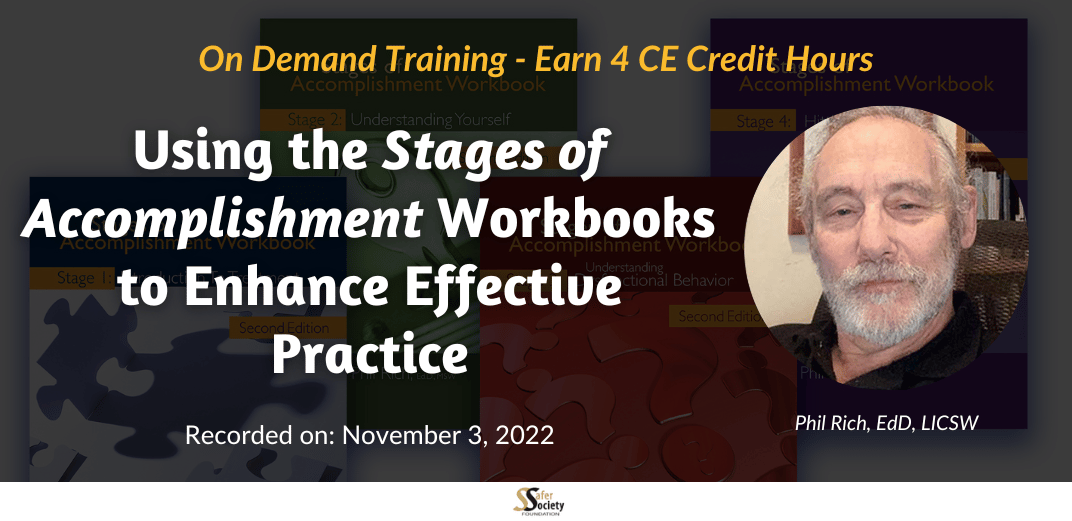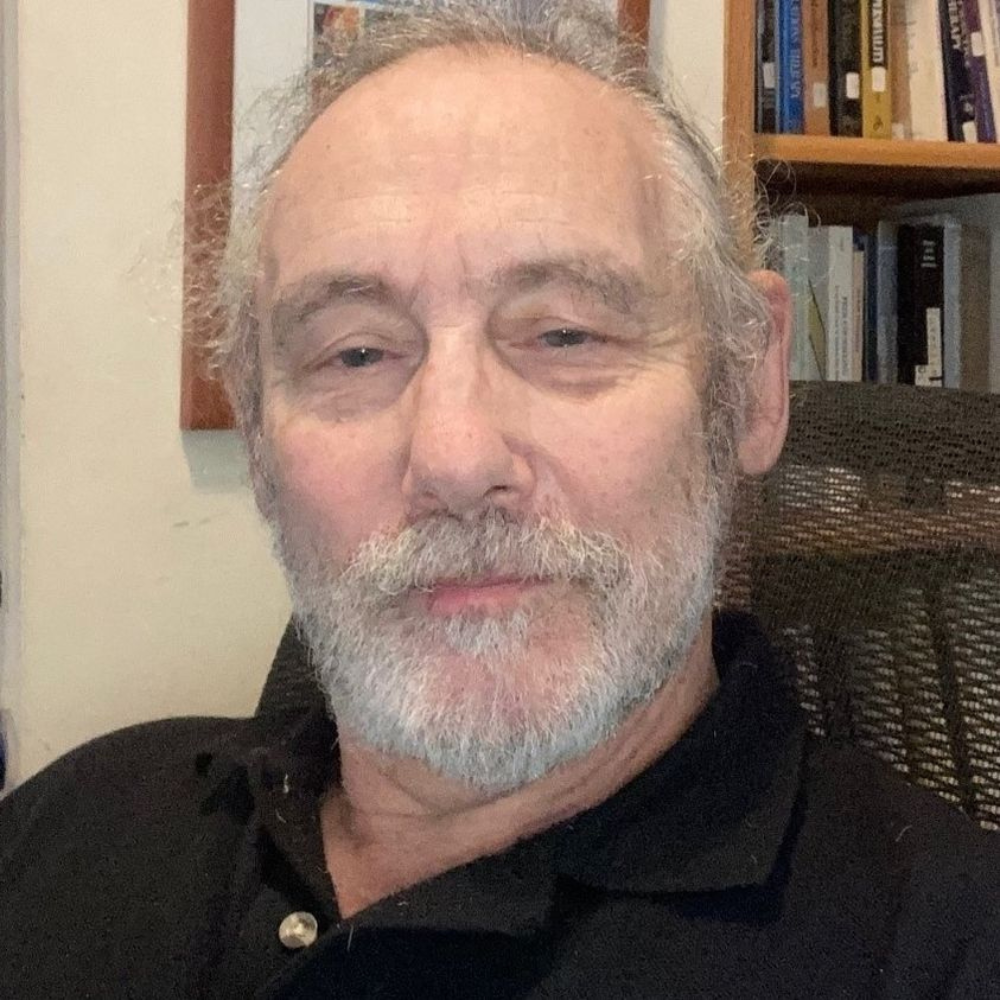
Using the Stages of Accomplishment Workbooks to Enhance Effective Practice
Already purchased an On Demand training?
Click here to access your Safer Society On-Demand Training Center account.
Professionals in psychology, social work, counseling, and other disciplines often use workbooks as a component of treatment programs. However, the best use of workbooks is rarely discussed, and there are differences among existing workbooks. The Stages of Accomplishment workbooks are based on decades of professional experience and research into what works in treatment with adolescents who have sexually abused.
This training begins by examining workbooks in general, including their strengths and limitations, and provides guidelines for their use. It offers 13 pointers for how to use workbooks in treatment (for example, considerations for how and when to use assignments and how to check for comprehension and retention of learned material). The training then looks specifically at the Stages of Accomplishment workbooks. The training, presented by the author of the workbooks, offers specific tips for fitting the workbook to the treatment program. It includes steps for both standardizing and individualizing workbook use in treatment.
Training topics include:
- Construction and purpose of workbooks
- Strengths and weaknesses of workbooks
- Guidelines for the use of workbooks
- Detailed outline of the Stages of Accomplishment workbooks
- Examples of workbooks exercises
- Cognitive-behavioral and psychoeducational concepts used in the Stages of Accomplishment workbooks
- Guidelines for the use of the Stages of Accomplishment workbooks
1) Explain the use of workbooks intended to be used in the treatment of adolescents who have engaged in sexually abusive behavior.
2) Describe the strengths and limitations of treatment-oriented workbooks.
3) Explain why workbooks are used as an addendum to and nested within treatment but not as the primary means of treatment.
4) Explain and describe essential psychoeducational and cognitive-behavioral concepts used in the treatment of adolescent sexually abusive or problematic behavior.
5) Use the Stages of Accomplishment workbooks in their treatment of adolescents who have engaged in sexually abusive behavior.
Audience
This training is for professionals working with adolescents who have sexually abused others. Professionals who will benefit from this training include social workers, psychologists, clinical counselors, and interested paraprofessionals.
Content Level
Disclosure
Continuing Education Approval
American Psychological Association (APA)
Safer Society Foundation, Inc. is approved by the American Psychological Association (APA) to sponsor continuing education for psychologists. Safer Society Foundation, Inc. maintains responsibility for this program and its content.
Who's Presenting

Phil Rich, Ed.D., LICSW
Phil Rich presents, trains, and consults nationally and internationally, specializing in work with children with problematic sexual behavior and adolescents and young adults who have engaged in sexually abusive behavior. He holds a doctorate in applied behavioral and organizational studies and a master’s degree in social work, and has been a licensed independent clinical social worker for almost 40 years. Phil served for 13 years as the Clinical Director of a large residential treatment program for children, adolescents, and young adults who have engaged in sexually abusive or sexually troubled behavior, and has been the Program or Clinical Director of six residential or day treatment programs. Phil is the author of four books that address work with sexually abusive youth, as well as multiple contributed chapters and articles, and a series of inter-related workbooks for youth in treatment for sexually problematic behavior, now in their second edition. He is a fellow of the Association for the Treatment of Sexual Abusers, served as the juvenile practice representative on the ATSA Executive Board, and was the founding chair of ATSA’s juvenile practice committee.
